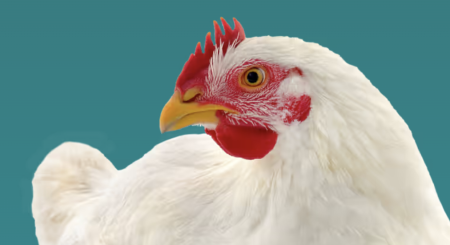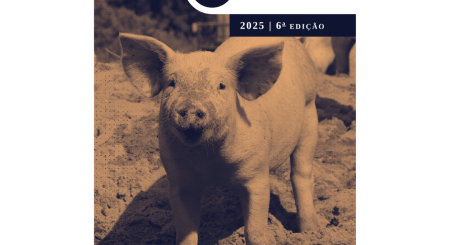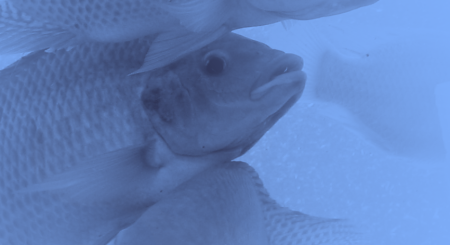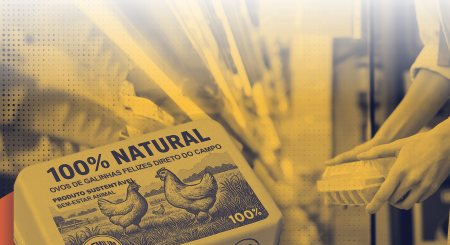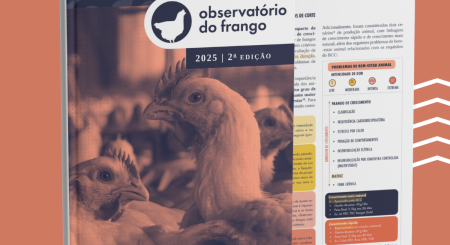3 reasons why agribusiness is not synonymous with food security
Accounting for 26% of the country’s GDP, agribusiness is not a guarantee of sufficient and quality food on the plates of the Brazilian population, who are once again facing hunger.
Imagine living in a country where, while it continues to break records with agribusiness , 55% of its population faces some level of food insecurity . Did you imagine? Unfortunately, this is not a dystopian projection, but rather a paradox of Brazilian reality. The increase in hunger, already seen even before the Covid-19 pandemic, had its final push downhill with the biggest global health crisis of our time, but in this same devastating scenario, Brazil was the third largest food producer in the world, and agribusiness was the only sector that grew during the period. Why, then, is the self-proclaimed “wealth of Brazil” sector not synonymous with food security for its citizens ?

(Photo: Elineudo Meira/Fotos Públicas)
Before we explore the three reasons why Agribusiness is not synonymous with food on the plate, it is important to define what food security means. According to the Organic Law on Food and Nutritional Security (Losan) , food security is defined as “the realization of everyone’s right to regular and permanent access to quality food, in sufficient quantity, without compromising access to other essential needs , based on health-promoting eating practices that respect cultural diversity and are socially, economically and environmentally sustainable”. When these ideals are compromised, food insecurity arises, which can be classified as mild, moderate or severe. If it is at the severe level, the person is experiencing hunger.
Although agribusiness is not solely responsible for the increase in food insecurity, it could facilitate access to food around the world. Furthermore, political maneuvers aimed at profitability leave out issues relating to food sovereignty and the eradication of hunger. Here are three reasons why Agribusiness in Brazil is not synonymous with food on every Brazilian’s plate:
COMMODITY IS NOT SYNONYMOUS WITH FOOD ON THE PLATE
An estimate by the Food and Agriculture Organization of the United Nations (FAO) indicates that the world today produces more than 2.74 billion tons of grains, and this quantity would be enough to feed the world population. However, agribusiness is a model that does not have the main perspective of feeding people, but rather of producing goods for export of some crops, the infamous commodities , which are basic raw materials produced on a large scale, traded worldwide and with great commercial value. and economical. These goods serve as the basis for the manufacture of other products with greater added value.
For example, Brazil is the largest producer and exporter of soybeans, accounting for the production of half of the oilseed consumed globally. The national soybean harvest in 2020/2021 was estimated at 135 million tons and broke export records in 2021 , with 83 million tons sent to other countries.

Pixabay
In this context, anyone who thinks that this amount will feed other populations is mistaken: according to data collected by AgroStat, of the 135 million tons of soybeans produced by the country, 12% was exported already processed as flour and oil, and 55% of grains in natura produced and sent for export will also be processed and used to mainly meet agricultural demand – in the fattening of animals exploited in the food industry. In other words, only a small portion of the fresh soy produced in the 36 million hectares of Brazilian territory is destined for direct consumption by Brazilian families.
When soy arrives on our table, it is generally associated with processed and ultra-processed foods, which does not contribute significantly to the quality of nutrients for a state of food security. Furthermore, soybeans and corn are two of the crops that use the most pesticides in Brazil, precisely to meet this high agricultural demand, and are intrinsically associated with high levels of deforestation.
INFLATION AND STAGNATION OF FOOD PRODUCTION IS NOT SYNONYMOUS WITH FOOD ON THE PLATE
In this context of greater profitability from commodity exports , food production for the domestic market is less advantageous. National rice production , for example, has remained stagnant in the face of rising food industry costs during the pandemic , the high dollar and low harvests due to climatic factors, such as droughts and frosts. All of these factors justify the increase in the value of food in the basic food basket, which leaves access for the most vulnerable consumers increasingly scarce.

Photo: Alex Capuano/CUT/Disclosure
Furthermore, meat production uses a very large portion of territory – with pasture and monocultures – that could be occupied by the production of diversified foods. Brazil is the largest exporter of beef in the world, and yet, 67% of Brazilians have cut down on red meat consumption due to inflation, unemployment and impoverishment.
DISMANTLING FAMILY FARMING IS NOT SYNONYMOUS WITH FOOD ON THE PLATE
Did you know that President Jair Bolsonaro almost entirely vetoed Bill (PL) 735/20 ? The project provided important emergency measures for family farmers in Brazil to mitigate the socioeconomic impacts of Covid-19. With the stroke of a pen, the president vetoed everything from emergency aid to these workers to the renegotiation and postponement of debts and emergency credit lines.
If, on the one hand, the president devalues and dismantles policies and programs to promote family farming production, on the other, he grants benefits to agribusiness , facilitating access to credit and financing the debts of large rural producers.

Photo: Agência Brasil
This weakening of family farming is not good for food security, after all, family farming is still responsible for ensuring a large part of the Brazilian population’s food. Data from the Secretariat of Family Agriculture and Cooperatives (SAF) indicate that family farming is responsible for 70% of what is consumed in the country, and unlike what happens in the context of agribusiness, which prioritizes the production of commodities , in family farming what polyculture predominates, making it possible to pave the way for the eradication of hunger (if with the support of public policies).,
Food insecurity is a major challenge for Brazil. As long as practices that contribute to the production of food diversity and food sovereignty are not applied and ensured, we will have an increase in hunger. Agribusiness, due to its unquestionable power, should comply with the maxim that says “Brazilian agriculture feeds the world” , considering the quality and access to food, respecting the democratization of land use for other productions, such as family farming, and always demanding a fair distribution of resources . Agriculture can only be considered “pop” if it is truly designed for the population.
So, what do you think? Leave your comment and let’s expand this dialogue.


